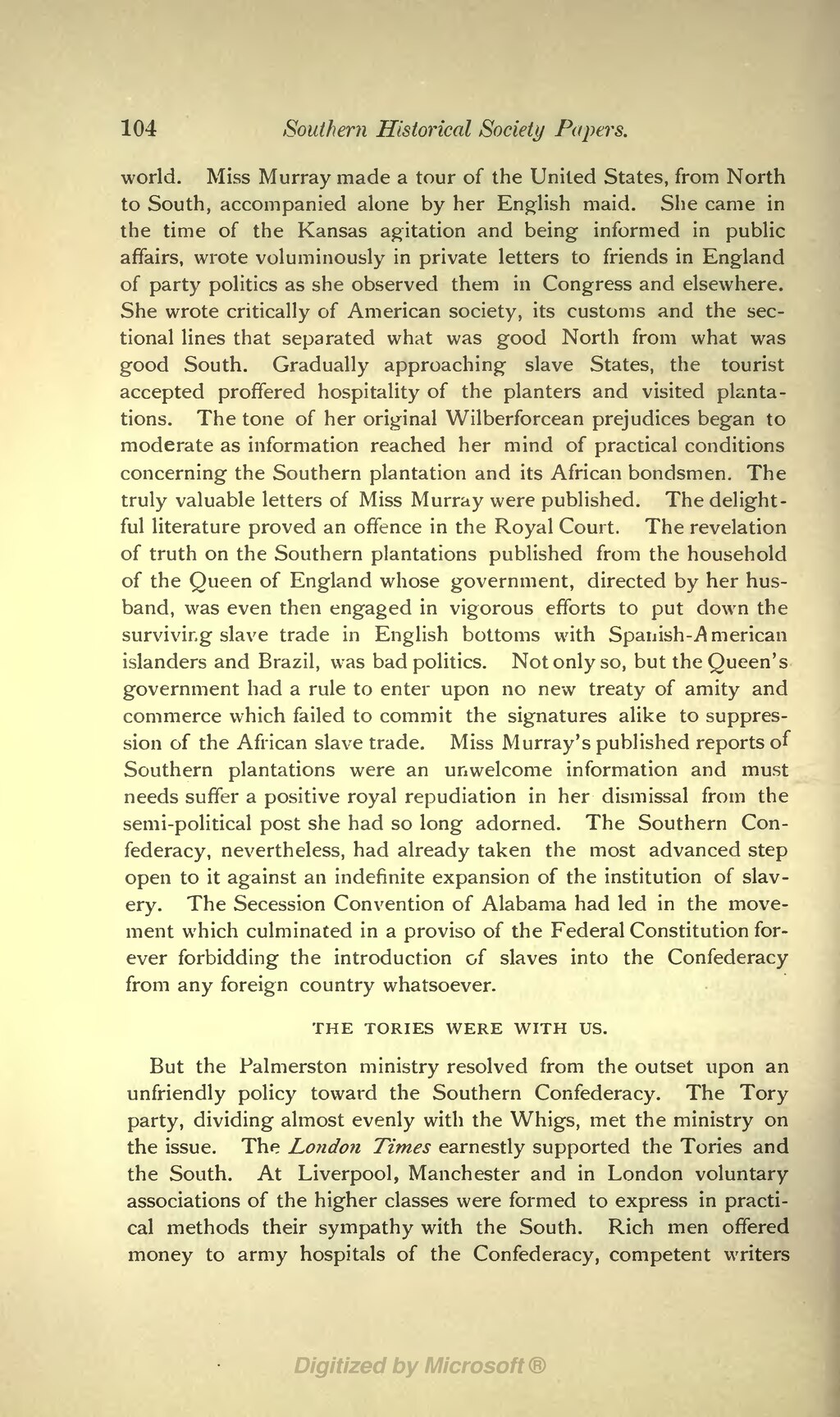104 Southern Historical Society Papers.
world. Miss Murray made a tour of the United States, from North to South, accompanied alone by her English maid. She came in the time of the Kansas agitation and being informed in public affairs, wrote voluminously in private letters to friends in England of party politics as she observed them in Congress and elsewhere. She wrote critically of American society, its customs and the sec- tional lines that separated what was good North from what was good South. Gradually approaching slave States, the tourist accepted proffered hospitality of the planters and visited planta- tions. The tone of her original Wilberforcean prejudices began to moderate as information reached her mind of practical conditions concerning the Southern plantation and its African bondsmen. The truly valuable letters of Miss Murray were published. The delight- ful literature proved an offence in the Royal Court. The revelation of truth on the Southern plantations published from the household of the Queen of England whose government, directed by her hus- band, was even then engaged in vigorous efforts to put down the surviving slave trade in English bottoms with Spanish-American islanders and Brazil, was bad politics. Not only so, but the Queen's government had a rule to enter upon no new treaty of amity and commerce which failed to commit the signatures alike to suppres- sion of the African slave trade. Miss Murray's published reports of Southern plantations were an unwelcome information and must needs suffer a positive royal repudiation in her dismissal from the semi-political post she had so long adorned. The Southern Con- federacy, nevertheless, had already taken the most advanced step open to it against an indefinite expansion of the institution of slav- ery. The Secession Convention of Alabama had led in the move- ment which culminated in a proviso of the Federal Constitution for- ever forbidding the introduction of slaves into the Confederacy from any foreign country whatsoever.
THE TORIES WERE WITH US.
But the Palmerston ministry resolved from the outset upon an unfriendly policy toward the Southern Confederacy. The Tory party, dividing almost evenly with the Whigs, met the ministry on the issue. The London Times earnestly supported the Tories and the South. At Liverpool, Manchester and in London voluntary associations of the higher classes were formed to express in practi- cal methods their sympathy with the South. Rich men offered money to army hospitals of the Confederacy, competent writers
